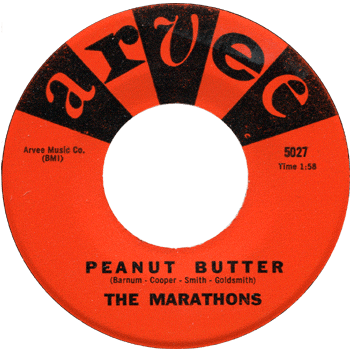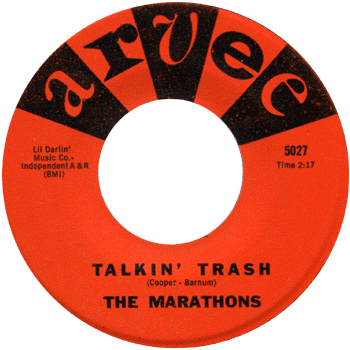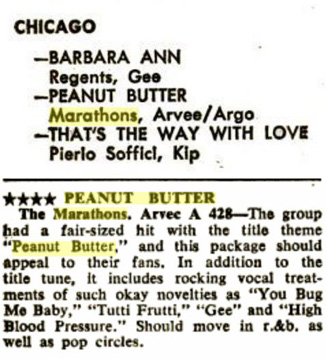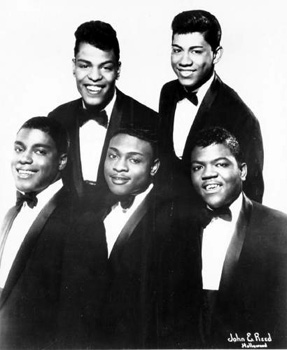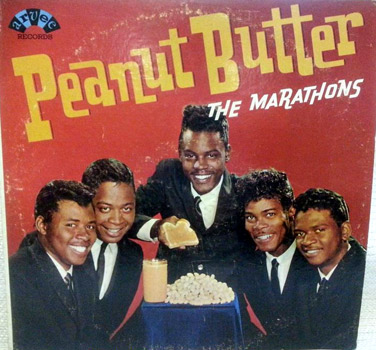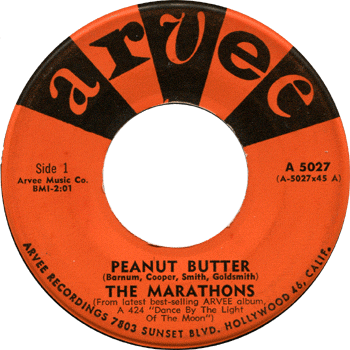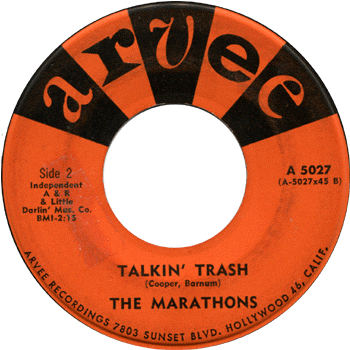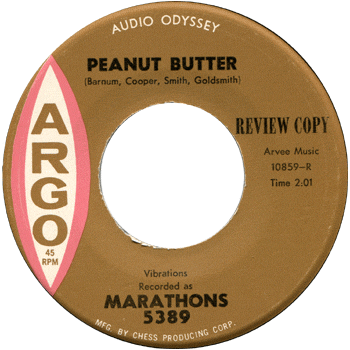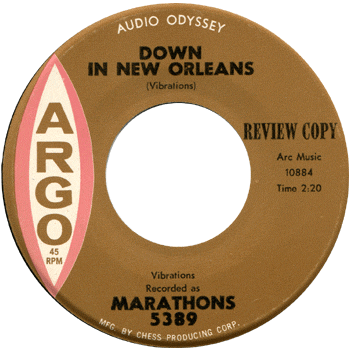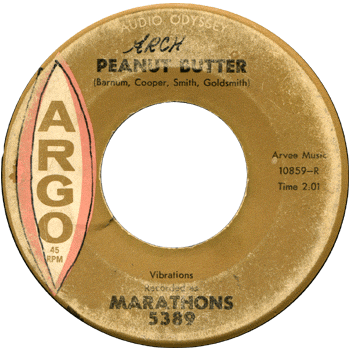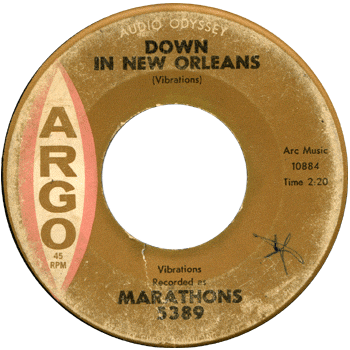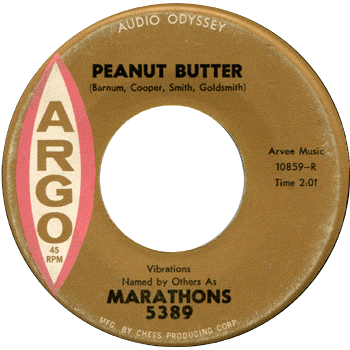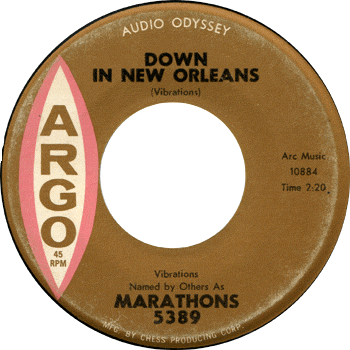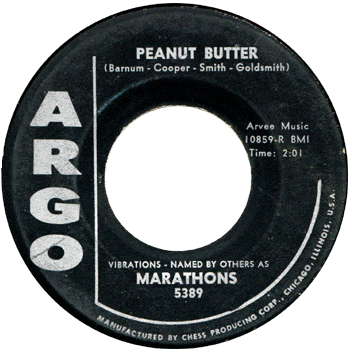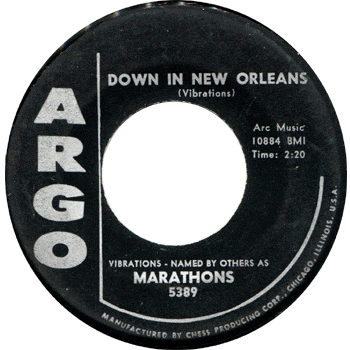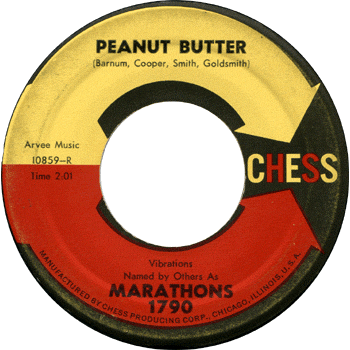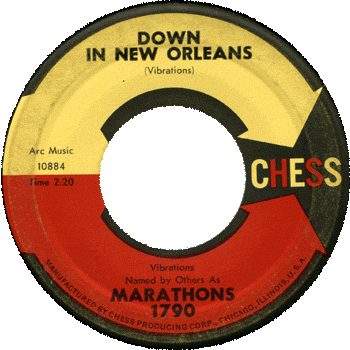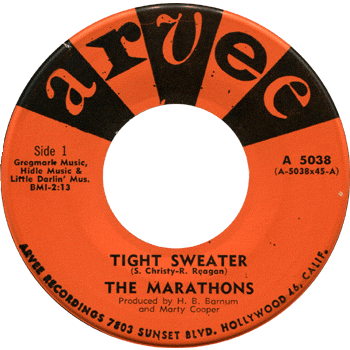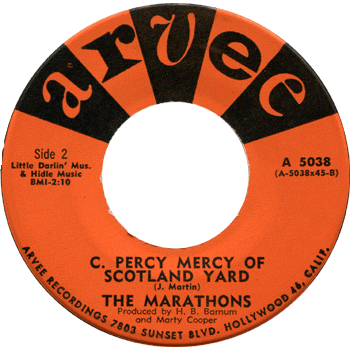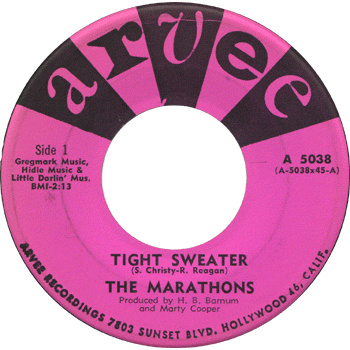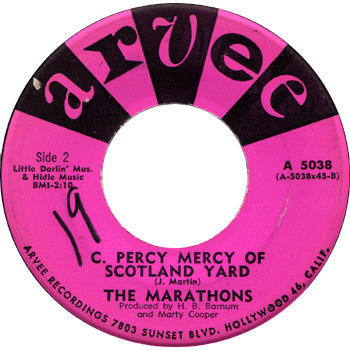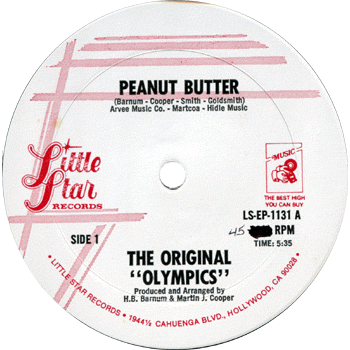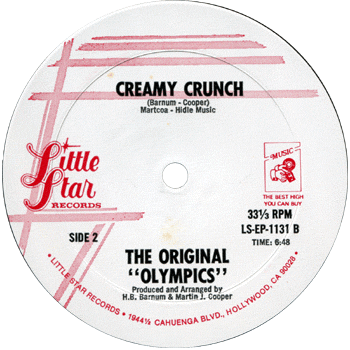To understand the Marathons and their 1961 hit record of "Peanut Butter, you have to go backwards. When you do, generally you start with the Jayhawks. The original group consisted of James Johnson (first tenor), Cleo White (first and second tenor), Carl Fisher (second tenor), Rene Beard (baritone), and Carver Bunkum (bass). That lineup would changed several times, typical of most vocal groups. Their first release for Flash records of Los Angeles, "Counting My Teardrops" failed, but their second issue, "Stranded In The Jungle" was a smash hit. Another record for Flash, and they were off doing other things. Like being the backup group on Earl Palmer's moderate selling version of "Johnny's House Party" on Aladdin, where they also recorded "Everyone Should Know" which was not a hit. From there, they recorded as the Vibes, Cleechays - backing Sonny Knight, and several others including some on the Eastman label. In 1960, they changed their name again, this time to the Vibrations, and despite a slow start, their 1961 recording of Watusi, catapulted them into the upper eschelons of the pop and R+B charts. From this point, the waters get murky. Producers/songwriters HB Barnum and Martin Cooper wrote a song called "Peanut Butter" that was intended for the Olympics. Listening to the record, it uses the same melody as the Olympics "Hully Gully." The story goes that the Olympics where on a US tour and were unavailable to cut the record. HB Barnum gave it to the Vibrations to record a demo for him. Somehow, it made it's way to the Arvee label, and they released it. They must have conspired to be sure the Vibrations name was not used, and they selected the name of the Marathons. When Chess found out their hot new vocal group was on Arvee as the Marathons, things really got ugly. Lawsuits ensued. Chess issued it on Argo using small font letters identifying the group with the Vibrations. Meanwhile, the platter was selling briskly on Arvee, reaching number twenty on Billboard and number twenty five R+B. Though it is thought the songs were re-recorded for Chess/Argo, but I hear the same take. I'm not sure exactly how that happened. I do know that the Chess/Argo discs fell flat.
